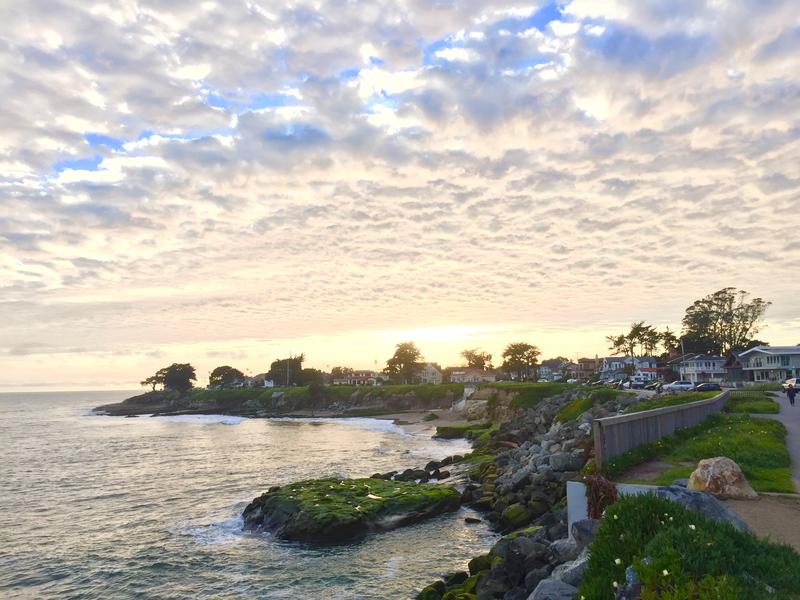David Remnick: The air is clear. It's just before dawn. A writer named Ellen Bass, who's published a number of poems in the New Yorker, is taking her daily walk along the ocean near her home in Santa Cruz, California.
Ellen Bass: Westcliff Drive is a strange intersection of nature and city. We have on the one side, the whole of the Pacific, we've got beautiful cypress trees, and on the other side, we have just a regular road that people are driving up and down and houses right up against it. We've still got some rosy finger dawn and a beautiful shining half moon. Oh, there's four seagulls just flying right across here. There's a surfer in the water and the whole of the Pacific.
I've been walking here almost every day for about 30 years, and every day is a different day. The ocean is really wild sometimes where it comes up over West Cliff Drive, so you can be walking along and have the spray hit you. Today it's pretty calm with just real nice, slow, perfect rollers crashing in. Oh, that surfer almost just got one here. The cliff here changes so fast, even in terms of erosion.
It's mudstone, which is layered, and as storms come and as the ocean keeps pounding into it, even just in the 30 years that I've been here, I've seen enormous change. They've had to actually move where the road is further in because where the road was is now in the ocean. That's so thrilling really to be able to live in geologic time. Right now the sun is just peeking up above the hills down toward Monterey. We see it just coming up over the ridge.
I was thinking that most people love or say they love variety and new things, and I think our culture does act like that. We always want something new and different and better, but my family and close friends tease me a lot about how much I love repetition and how much I love to just do the same thing over and over in a mule-like way. The first thing I thought about was this walk that I take every day on Westcliff Drive, and so I wrote this poem, Ode to Repetition.
I like to take the same walk
down the wide expanse of Woodrow to the ocean
and most days I turn left toward the lighthouse.
The sea is always different. Some days dreamy,
waves hardly waves, just a broad undulation
in no hurry to arrive. Other days the surf’s drunk,
crashing into the cliffs like a car wreck.
And when I get home I like
the same dishes stacked in the same cupboards
and then unstacked and then stacked again.
And the rhododendron, spring after spring,
blossoming its pink ceremony.
I could dwell in the kingdom of Coltrane,
those rivers of breath through his horn
as he forms each phrase of Lush Life
over and over until I die. Once I was afraid
of this, opening the curtains every morning,
only to close them again each night.
You could despair in the fixed town of your own life.
But when I wake up to pee, I’m grateful
the toilet’s in its usual place, the sink with its gift of water.
I look out at the street, the halos of lampposts
in the fog or the moon rinsing the parked cars.
When I get back in bed I find
the woman who’s been sleeping there
each night for thirty years, only she’s not
the same, her body more naked
in its aging, its disorder. Though I still
come to her like a beggar. One morning
one of us will rise bewildered
without the other and open the curtains.
There will be the same shaggy redwood
in the neighbor’s yard and the faultless stars
going out one by one into the day.
David Remnick: Ellen Bass read her poem, Ode to Repetition, which appears in the collection Like a Beggar. You can read more of her work at newyorker.com.
Copyright © 2022 New York Public Radio. All rights reserved. Visit our website terms of use at www.wnyc.org for further information.
New York Public Radio transcripts are created on a rush deadline, often by contractors. This text may not be in its final form and may be updated or revised in the future. Accuracy and availability may vary. The authoritative record of New York Public Radio’s programming is the audio record.
